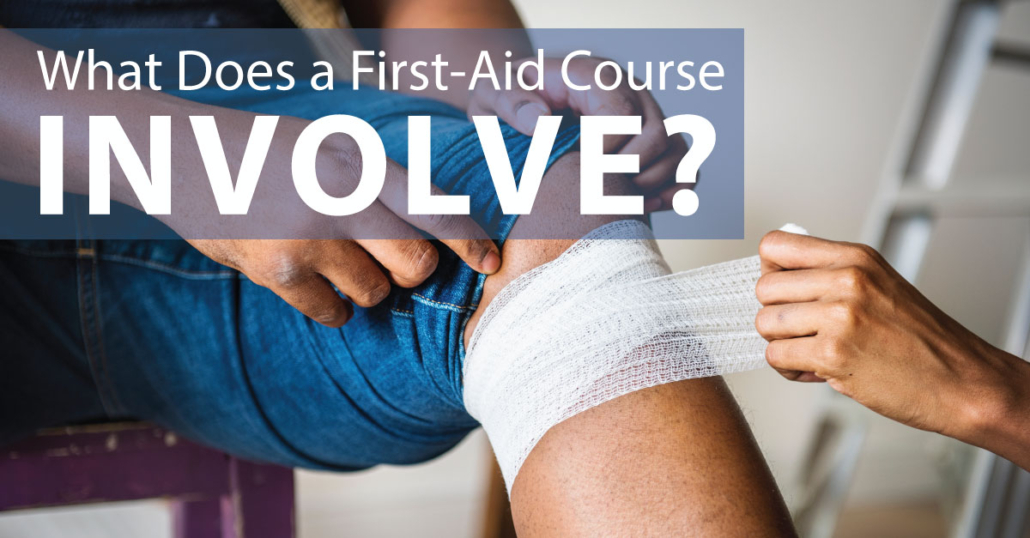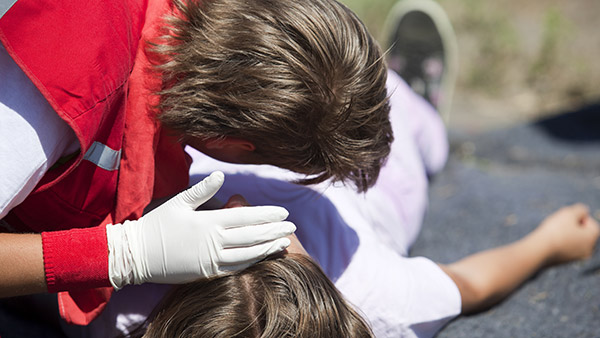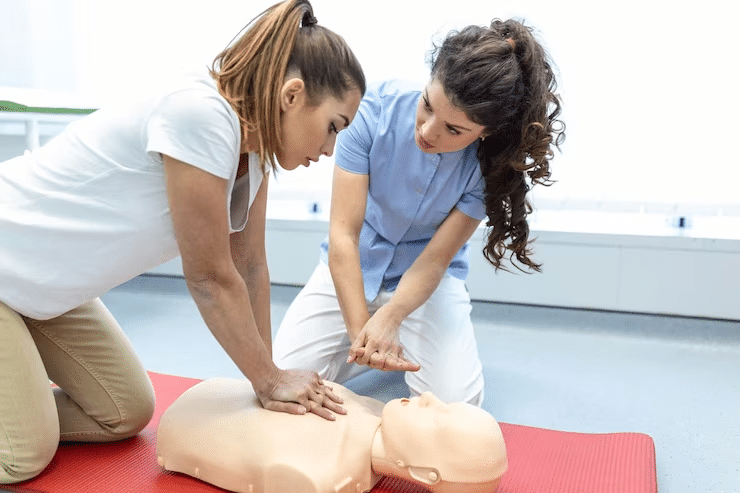Introduction
In a globe where mishaps can occur at any moment, knowing exactly how to respond properly can be the distinction between life and death. Cardiopulmonary resuscitation (MOUTH-TO-MOUTH RESUSCITATION) is an important skill that everybody must take into consideration finding out. However with so many alternatives readily available, navigating the globe of mouth-to-mouth resuscitation programs can really feel overwhelming. So, which one is right for you? This write-up intends to guide you with the numerous mouth-to-mouth resuscitation courses offered, aiding you choose the very best suitable for your needs.
Understanding CPR and Its Importance
What is CPR?
Cardiopulmonary resuscitation (MOUTH-TO-MOUTH RESUSCITATION) is an emergency treatment performed on individuals whose heart has stopped defeating or who have actually stopped breathing. It includes upper body compressions and rescue breaths to keep blood circulation and oxygenation until sophisticated clinical help gets here.
Why is mouth-to-mouth resuscitation Important?
The importance of mouth-to-mouth resuscitation can not be overstated. Statistics show that immediate mouth-to-mouth resuscitation can increase and even triple a sufferer's opportunities of survival after cardiac arrest. Learning mouth-to-mouth resuscitation not just furnishes you with the skills to save lives however additionally enhances your confidence in emergency situations.
When Needs to You Utilize CPR?
CPR needs to be started when a person is unresponsive, not taking a breath typically, or exhibiting indicators of severe distress. Being able to determine these scenarios swiftly can conserve priceless minutes.
Navigating the World of Mouth-to-mouth Resuscitation Courses: Kinds Available
Basic Life Assistance (BLS) Courses
What is BLS?
BLS courses are made for healthcare providers and professionals that need to maintain certification in standard life support methods. These training courses cover essential First Aid Course Perth skills such as high-grade upper body compressions, air passage management, and utilizing an Automated External Defibrillator (AED).
Who Should Take BLS Courses?
If you're a medical care worker, caretaker, or a person wanting to enhance their medical knowledge, a BLS training course may be suitable for you.
Heartsaver ® CPR/AED Courses
What are Heartsaver ® Courses?
The Heartsaver ® program provides programs customized for laypersons. It concentrates on grownup, youngster, and baby mouth-to-mouth resuscitation strategies in addition to AED usage.
Who Must Consider Heartsaver ® Courses?
These training courses are perfect for instructors, coaches, parents, and anyone in charge of others' safety and security that might need to act in an emergency situation.
First Help Training course vs. Emergency Treatment and CPR Course
What Does a First Aid Course Cover?
A first aid course commonly covers the essentials of dealing with injuries such as cuts, burns, fractures, and choking occurrences without concentrating on resuscitation methods.
Why Integrate First Aid with CPR Training?
Combining first aid training with a CPR program equips you with thorough emergency feedback abilities. By comprehending both emergency treatment and resuscitation techniques, you'll be much better prepared to manage numerous emergencies.
Advanced Heart Life Support (ACLS)
What is ACLS Training?
ACLS training exceeds basic life support by including advanced clinical abilities like carrying out medicines and managing respiratory system failure.
Who Requirements ACLS Certification?
ACLS accreditation is usually needed for medical care professionals operating in crucial treatment settings such as healthcare facilities or emergency situation rooms.
Choosing the Right Program for You: Elements to Consider
Your Degree of Experience
Before joining in any course, examine your present degree of knowledge pertaining to emergency treatment and CPR strategies. Newbies may benefit from starter programs like Heartsaver ®, while knowledgeable individuals may choose more intensive training like BLS or ACLS.
Your Responsibilities
Consider your duty in your area or workplace. If you are in charge of Tullamarine First Aid Course Near Me others' safety and security-- like an instructor or instructor-- you might intend to spend time in thorough emergency treatment and CPR training.
Course Layout: In-Person vs. Online Options
In-Person Training Advantages
- Hands-on experience Immediate feedback from instructors Networking opportunities
Online Training Advantages
- Flexibility Convenience Often cheaper
Understanding Certification: What You Required to Know
Duration of Certifications
Most qualifications last in between 2 to 3 years before requiring renewal; however, this varies by organization.
Recognized Organizations Offering Certification
Several companies offer reputable qualification programs:
- American Heart Association (AHA) Red Cross National Security Council (NSC)
Finding High quality Educating Providers
Researching Regional Options
Look right into regional healthcare facilities or recreation center providing first aid programs to find hassle-free choices near you.

Online Resources
Many companies use online training components that provide qualification upon conclusion-- a superb option if time restrictions are an issue.
Costs Related to Various Courses
|Program Type|Ordinary Cost|| ---------------------|----------------|| Fundamental Life Assistance|$100 - $150|| Heartsaver ®|$50 - $80|| Emergency treatment Only|$60 - $100|| ACLS|$200 - $300|
How to Prepare for Your Course
Pre-Course Recommendations
Before going to course:
Review any type of supplied materials. Wear comfy clothing. Bring any type of necessary supplies detailed by your instructor.What Takes place After Completion?
After successfully completing your picked training course:
You'll obtain an accreditation card. Keep it upgraded according to your provider's guidelines. Apply what you have actually found out on a regular basis with practice sessions if possible!Common Misconceptions Regarding First Aid and CPR Training
Misconception 1: Just Medical Care Professionals Required This Training
This might not be additionally from the truth! Every person can benefit from recognizing just how to administer first aid or execute CPR!
Misconception 2: I'll Never ever Have To Use It
Emergency situations emerge unexpectedly; being prepared is always wise!


FAQs About First Aid Certificates & Courses
How long does it require to complete a normal first aid course? The majority of first aid training courses take around 4 hours however can vary relying on material depth.
Will I get a certificate after finishing my course? Yes! The majority of reliable companies offer certifications upon successful completion.
How commonly do I need to renew my certification? Generally every two years; talk to your certifying organization.
Can I take these training courses online? Absolutely! Numerous companies supply on-line choices permitting flexibility.
Are there age requirements for taking these courses? Normally no age limit exists; nevertheless, adult consent might be needed under particular circumstances.
Do companies require workers to have these certifications? Numerous companies do choose employee learnt first aid/CPR-- it shows commitment towards workplace safety!
Conclusion: Your Journey Begins Now!
With many options readily available when it comes down finding which training course fits best-- whether it's Basic Life Support (BLS), Heartsaver ®, Advanced Cardiac Life Assistance (ACLS), or perhaps just general First Aid-- the vital takeaway stays clear: Taking proactive actions towards improving your data base around emergency treatment & & cardiopulmonary resuscitation will http://manuelhlks079.theburnward.com/cpr-training-for-teenagers-preparing-the-next-generation-for-emergencies ultimately equip YOU! By spending time right into browsing the world of mouth-to-mouth resuscitation training courses sensibly today ensures preparedness tomorrow-- due to the fact that every 2nd counts during emergencies!